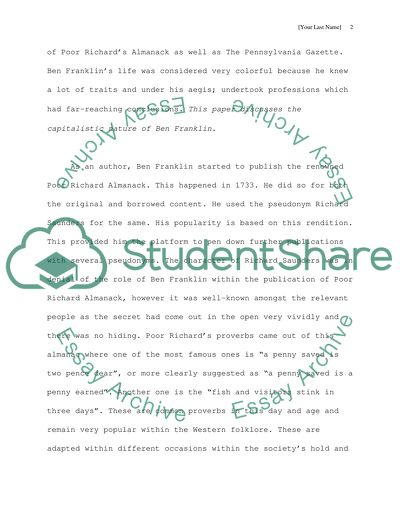Cite this document
(“The capitalistic nature of Ben Franklin Research Paper”, n.d.)
Retrieved from https://studentshare.org/family-consumer-science/1418053-the-capitalistic-nature-of-ben-franklin
Retrieved from https://studentshare.org/family-consumer-science/1418053-the-capitalistic-nature-of-ben-franklin
(The Capitalistic Nature of Ben Franklin Research Paper)
https://studentshare.org/family-consumer-science/1418053-the-capitalistic-nature-of-ben-franklin.
https://studentshare.org/family-consumer-science/1418053-the-capitalistic-nature-of-ben-franklin.
“The Capitalistic Nature of Ben Franklin Research Paper”, n.d. https://studentshare.org/family-consumer-science/1418053-the-capitalistic-nature-of-ben-franklin.


